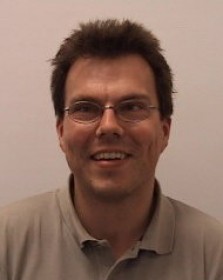
3:00 pm to 4:00 pm
Event Location: NSH 1507
Bio: Dr Roland Goecke is an Associate Professor in Information Technology & Engineering at the Faculty of Education, Science, Technology and Engineering, University of Canberra, Australia. He leads the Vision and Sensing Group and is Deputy Director of the Human-Centered Computing Research Laboratory. He received his Masters degree in Computer Science from the University of Rostock, Germany and his PhD in Computer Science from the Australian National University, Canberra, Australia. Before joining UC in December 2008, Dr Goecke worked as a Senior Research Scientist with Seeing Machines, as a Researcher at the NICTA Canberra Research Labs, and as a Research Fellow at the Fraunhofer Institutes for Computer Graphics, Germany.
Abstract: In this talk, I will give an overview of our research to develop technology that analyses affective state with the goal of informing research and clinical care in mental health. Our major focus presently is depression and other mood disorders. Mood disorders are common. Their impact on individuals and families is profound. The WHO Global Burden of Disease quantifies depression as the leading cause of disability world-wide.
Despite depression’s high prevalence and morbidity, current clinical practice depends almost exclusively on self-report and clinical impression, which are vulnerable to subjective bias. No laboratory-based measures exist of depression course and recovery for use in research or clinical practice.
Using multimodal analysis of facial expression, body posture and movement, and vocal prosody, we are developing affective sensing technology that supports clinicians in the diagnosis and monitoring of treatment progress. In a recent pilot study, this approach achieved over 90% agreement with clinical assessment. We currently are extending this work to other disorders that include anxiety, post-traumatic stress, dementia, and autism spectrum. We are becoming especially interested in dyadic and group social behavior. At the core of our research is a focus on robust approaches that can work in real-world environments.
